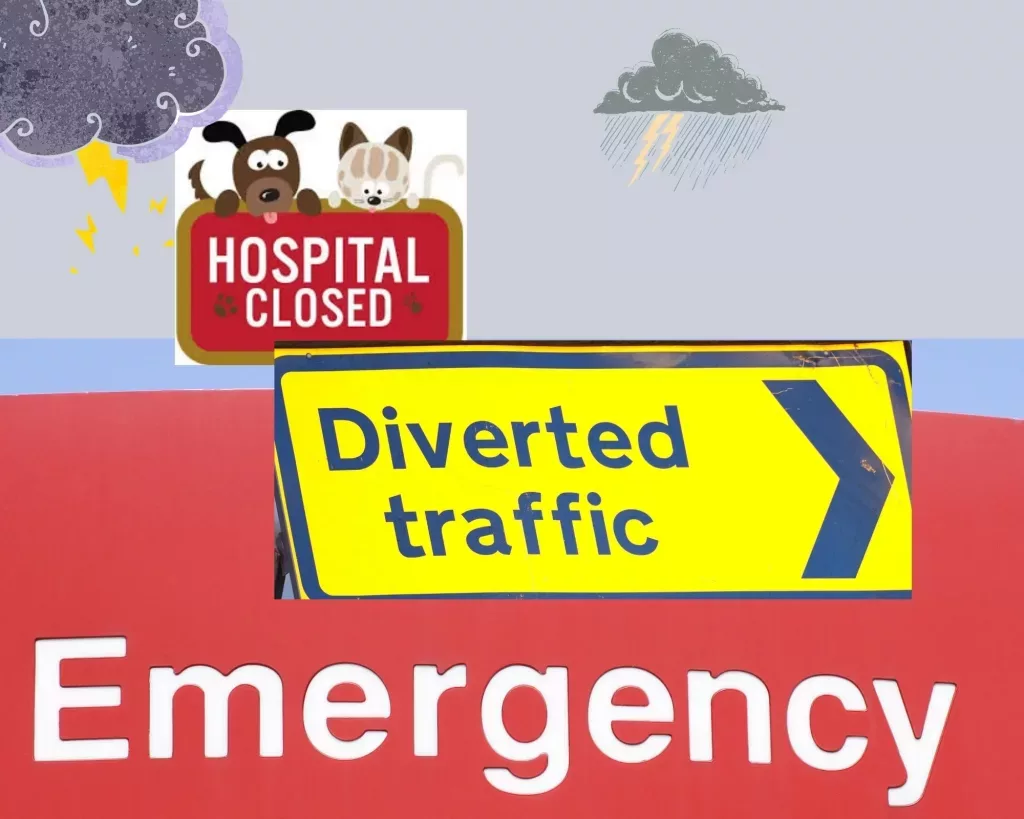Leading East Coast veterinary hospital announces reduced emergency services, citing nationwide shortage of vets, support staff, and unprecedented patient volume
MSPCA Angell Animal Medical Center in Boston, one of America’s leading veterinary teaching hospitals, announced last week that it would begin diverting non-life-threatening emergency cases arriving between 7 p.m. and 7 a.m. Angell is the first major vet hospital in the Northeast to announce a formal policy of diverting non-life-threatening emergency cases that TCR is aware of.
“It’s a very difficult situation,” hospital spokesman Rob Halpin told TCR in an email Monday morning.
He continued:
I’m not sure how much more we can add to this other than to say that on some nights, depending on staffing levels that we won’t be able to forecast too far in advance, Angell will divert new emergency cases to other emergency or urgent care facilities, usually starting at 7pm and throughout the night—with the exception of patients experiencing an imminent, life-threatening medical emergency (e.g., animals in cardiac arrest, difficulty breathing or severe trauma, such as animals hit by cars).
Over the past several weeks, it seemed as if entire regions of the United States were experiencing veterinary hospital blackouts with some hospitals closing entirely, reducing hours, or no longer offering 24/7 emergency services. A wave of veterinary specialty hospitals in California and Washington State – there was a notable cluster in Seattle – began announcing plans to divert emergency cases or close entirely.
Although increased demand from the pandemic might explain some of the challenges currently facing the industry, economists such the AVMA’s Matthew Salois rightly note that beyond the pandemic puppy boom, there loom more longstanding challenges.
We think it’s worth revisiting the findings of the benchmark KPMG Megastudy of 1999 which led to the establishment of Mr. Salois’ precursor, the NCVEI [National Commission on Veterinary Economic Issues] in 2000. In an article reflecting on the Megastudy on its twenty-year anniversary, JAVMA offers this:
Known also as the Megastudy, it was the first of its kind for veterinary medicine: a comprehensive and far-reaching analysis of such issues as supply, demand, income, gender, and the characteristics of successful practices. It identified emerging trends such as substantial increases in veterinary educational debt, emergence of large corporate organizations that deliver veterinary services, and changes in how people view their pets and other animals….
The NCVEI’s goal was to improve the profession’s performance outside the clinic, namely in business and finance. So one can’t help but wonder if Angell’s announcement is a signal of trouble well beyond Boston and well beyond COVID-related trends.
One of the most frequently cited culprits of the financial state of the industry is the cost of veterinary school, the exponential growth of that cost, and the fact that it persistently outpaces inflation. Add to that, the costs to practice, to operate a practice, the numerous types of insurance and licenses and certifications a vet is expected to maintain. Therefore, it would appear that one obvious solution is that the profession needs to raise prices substantially across the board. It’s curious that the concept does not even seem to be in the realm of discussion.
The full announcement from Angell:
Due to the unprecedented volume of patients and a nationwide veterinary staffing shortage, on some nights, the Angell Emergency & Critical Care (ECC) service in Boston will be diverting new emergency cases to other emergency or urgent care facilities usually starting at 7pm and throughout the night with the exception of patients experiencing an imminent, life-threatening medical emergency (e.g., cardiac arrest, difficulty breathing, GI stasis in rabbits etc.). We will post our updated diversion status on facebook.com/MSPCAAngell and we urge clients to call 617-522-7282 before visiting our Angell Boston emergency room to confirm that we are not on diversion status. For alternate veterinary emergency care options, please call the hospitals listed below to ask if they are accepting emergency cases. For less critical conditions, you may also call 781-902-8400 to book an appointment with our Angell West Urgent Care team in Waltham (by appointment only). Angell Urgent Care appointments are available for dogs, cats and avian/exotic species.
More reporting to follow.

